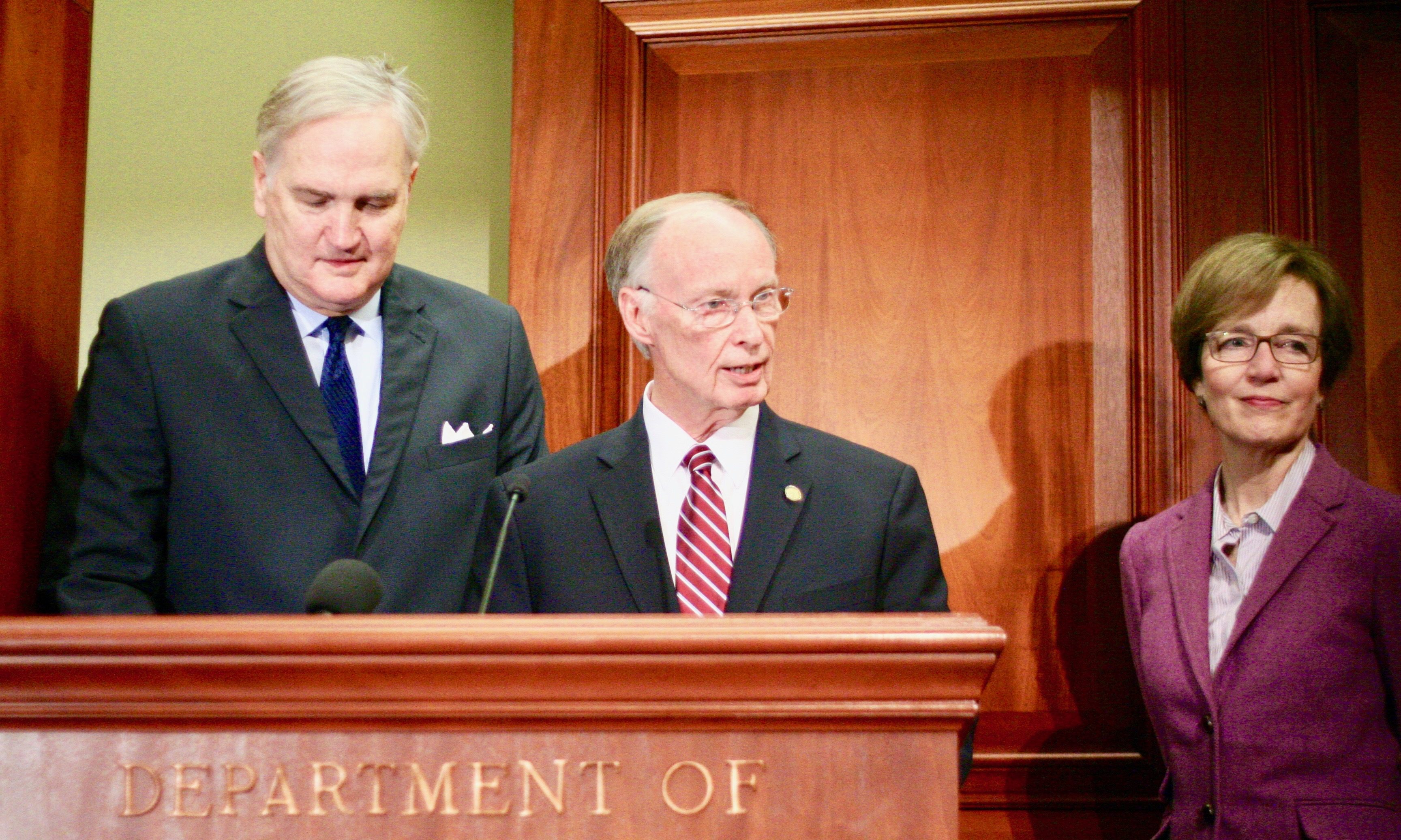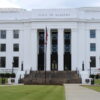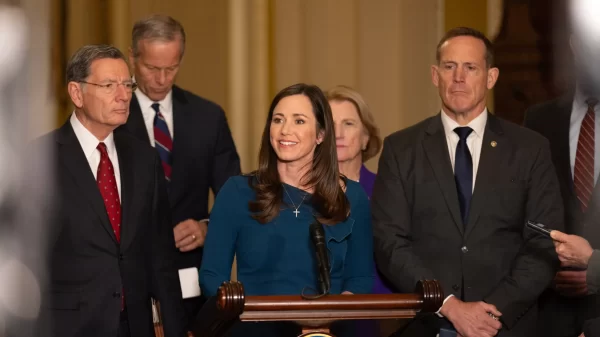By Sam McLure
Alabama Political Report
Have you talked with anyone in Alabama who isn’t bothered by Luther Strange’s acceptance of Gov. Bentley’s appointment to US Senate? I haven’t.
Everybody has an internal baloney meter – the bologna meter goes off when we hear something that just sounds off. Maybe we can’t explain why it’s wrong … it’s just baloney.
I think most Alabamians, who were paying attention, had their bologna meters peaking-out with the news of Gov. Bentley appointing Sen. Strange. For months we waited in anticipation to learn who Gov. Bentley would appoint to replace, then, Sen. Jeff Sessions. For months we speculated and pondered … lists were drawn and even far-out speculation was floated that Gov. Bentley would appoint himself, or even Rebecca Mason.
Then we watched in wonder as the man tasked with investigating Gov. Bentley for impeachment – the man who purportedly told the House of Representatives to stand down from investigating because he had it under control – accepted Gov. Bentley’s offer of promotion to US Senate. We all grimaced in amazement … like watching a horrific car accident in slow motion … all we could do was shake our heads in disbelief.
But, what has been the backlash? Have there been any repercussions to Sen. Strange? Did he violate any law or ethical standards?
If there have been any disciplinary consequences to Sen. Strange, they haven’t been public. The rest of this article is devoted to the premise that Sen. Strange did, in fact, flagrantly violate ethical standards and he should be held to account: either through being disablement or suspension from the practice of law.
First, all attorneys in Alabama are bound to uphold the ethical standards laid out in the Alabama Rules of Professional Conduct. Rule 3.8 explains the special responsibilities of prosecutors. However, Rule 3.8 is pretty vague. The comment to the rule provides guidance in referencing ABA Standards of Criminal Justice Relating to the Prosecution Function, and states that the ABA Standards should be “used in interpreting the requirements of Rule 3.8.”
So, what do the ABA standards say about how a prosecutor, like the Attorney General, should treat conflicts of interest? Section (f) states that “A prosecutor should not permit his or her professional judgment or obligations to be affected by his or her own political … interests.”
Thus, we must ask our bologna meters: Did Sen. Strange’s ambitions for US Senate affect his professional judgment or obligation to investigate Gov. Bentley? While the order of events certainly looks suspect, proving this would be incredibly difficult. The trier of fact would have to get “inside the mind” of Sen. Strange to see if he intentionally hindered the investigation into Gov. Bentley in order to court Gov. Bentley’s US Senate appointment.
Difficult? Yes. Is it worth the effort to the State of Alabama? Absolutely. If the political elites of Alabama will not hold their own accountable, then it’s up to the people of Alabama to hold them accountable. The people of Alabama deserve it.
Still not convinced? Okay, let’s look at Rule 1.7 (b): “A lawyer shall not represent a client if the representation of that client may be materially limited by the lawyer’s … own interests …” Sen. Strange, in his capacity as Attorney General, represented the State of Alabama. The State of Alabama was his client.
So, the question for our bologna meters is this: Did Sen. Strange’s own interests in becoming a US Senator “materially limit” his representation of the State of Alabama?
The answer to that questions again turns on the question of whether Sen. Strange intentionally impeded Gov. Bentley’s investigation to court Gov. Bentley’s appointment to US Senate.
Again, the inquiry is difficult to prove … and probably exponentially difficult given the level of sophistication of the alleged perpetrators. But, again, the people of Alabama deserve the effort.
The second thing we need to reference is the Alabama Rules of Disciplinary Procedure and the Alabama Standards for Imposing Lawyer Discipline. These standards explain that in order for a lawyer to be subject to discipline for violation of an ethical standard, there must be proof of “actual or potential injury caused by the lawyer’s misconduct.”
For the sake of argument, let’s assume that Sen. Strange did violate an ethical standard. Let’s assume we could prove that. We must next be able to prove that there was some type of injury to Sen. Strange’s client – the State of Alabama.
What do you think? Did Alabama suffer injury due to Sen. Strange’s alleged ethical violations? If Gov. Bentley should have been impeached and he wasn’t because of Sen. Strange’s alleged ethical violations, then the injury is taken for granted. Every day Gov. Bentley stays in office, when he should be impeached, is a grave injury to the people Alabama. However, to make that argument, it will be necessary to prove that Gov. Bentley should be impeached. According to Rep. Ed Henry, we should have some progress on that question before the end of April.
The second level of injury arises from the disrepute that Sen. Strange has caused the legal profession and the State in general. This one is a little more amorphous. The argument goes like this: “Perhaps Sen. Strange didn’t do anything ‘evil,’ but he surely didn’t ‘avoid the appearance of evil.’ Because this arrangement makes the bologna meter ping so high, Sen. Strange had a duty to walk away from the appointment.”
Admittedly, this level of injury might be a little too squishy to do much damage. Thus, it appears that the case for any injury to the State rests on whether there was actually an impeachable offense committed by Gov. Bentley.
But, let’s not get bogged down there just yet.
Let’s turn to the third item for consideration: What range of disciplinary measures are available if we could prove (1) violation, (2) mental state, and (3) injury?
The Alabama Standards for Imposing Lawyer Discipline (“the Standards”) 4.3, relating to Failure to Avoid Conflicts of Interest, suggest that Disbarment or Suspension could be appropriate disciplinary measures for Sen. Strange’s alleged ethical misconduct.
The Standards also state in 5.2, Failure to Maintain the Public Trust, that “Disbarment is generally appropriate when a lawyer in an official or governmental position knowingly misuses the position with the intent to obtain a significant benefit or advantage for himself … with the intent to cause serious or potentially serious injury to … the integrity of the legal process.”
There it is … if your bologna meter peaked out when Luther Strange was appointed to the U.S. Senate you are not alone. If you think there is a sufficient likelihood of impropriety that you would like a public hearing to determine if there is clear and convincing evidence of Sen. Strange’s alleged ethical violations, then contact me.
I’m applying the Rule of Six in this case. If five other Alabama citizens will join with me in a Disciplinary Complaint to the Alabama State Bar, then we’ll file it together.





















































